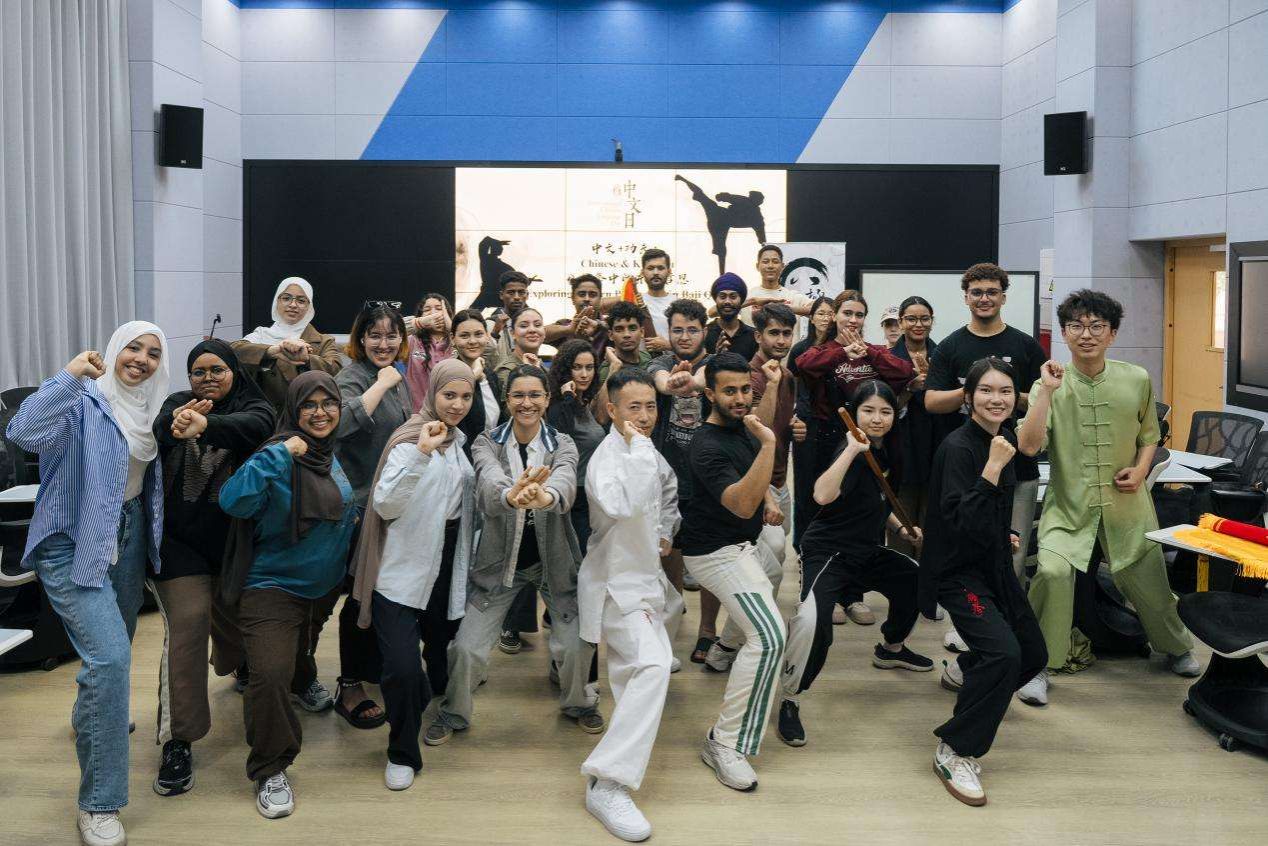By Liu Bochao | Translated by Chen Jie | Reviewed by

On April 20, Ningbo University’s Zhiyu Xingchen International Chinese Education Team joined forces with the Confucius Institute at the University of Tamatave, Madagascar, to present a unique online cultural exchange titled "Chinese Language+Kung Fu: Eastern Philosophy in Baji Quan". The event blended martial arts training with cultural exchange, offering global participants an immersive journey into China’s intangible heritage.
A Masterclass in Martial Philosophy
The event featured a live tutorial by Master Cui Zhenfeng, the ninth-generation inheritor of Wu-style Kai Men Baji Quan and a national-level intangible cultural heritage bearer. Cui is also a faculty member of the Faculty of Foreign Languages, NBU. Opening with a dynamic demonstration of Baji Quan’s signature techniques—explosive strikes and close-range grappling—Master Cui captivated audiences across screens, showcasing the art’s raw power and technical precision.
Moving beyond physical movements, Master Cui guided participants through the three dimensions of Baji Quan philosophy:
Ideological Framework: The overarching theory guiding all martial practices.
Martial Adaptation Theory: Combat technique variations under ideological guidance.
Biomechanical Principles: Physics-based theories for optimizing movements.
Through slow-motion drills and interactive Q&A, attendees explored how Baji Quan embodies the Chinese ideal of martial arts as a vehicle for moral cultivation, transforming combat into a medium for spiritual growth.
Bridging Cultures Through Motion
Madagascan participants praised the program’s innovative approach, which allowed them to explore Chinese language and culture through movement. For many, learning Chinese through Kung Fu offered a meaningful fusion of physicality and philosophy, helping them feel the depth and warmth of Chinese culture—both intellectually and emotionally.
This cross-cultural, cross-regional exchange broke through the barriers of distance and time. By blending language learning with martial arts, the event transformed “learning Chinese” into an embodied experience, where gestures and breath became part of understanding the soul of Chinese civilization.
Future Horizons
The Team affirmed its commitment to pioneering immersive educational programs with the goal to make Chinese culture resonate globally through creativity and collaboration. Future initiatives will continue blending language with traditional arts, calligraphy, and music, fostering a subtle yet profound dialogue between China and the world.
This groundbreaking event not only celebrated martial arts heritage but also illuminated a path for cultural diplomacy—one where fists and philosophy unite to tell China’s story.




